|
Earth
c.1570
Giuseppe Arcimboldo
1527 - 1593
.....................................................
Confounding Faces
Jed Perl On Giuseppe Arcimboldo And Franz Xaver Messerschmidt
The New Republic
(....)
Both Arcimboldo and Messerschmidt are in many respects confounding personalities, connoisseurs of strangeness and disquietude, administrators of shocks and surprises who were in search of a form that almost by definition violated the norm. Are they just what we need in our seen-it-all-done-it-all era? Or are they merely the latest sideshow at the funhouse that the art world has become? ...(more)
.....................................................
Franz Xaver Messerschmidt
1736 – 1783
_______________________
>Language >Place Blog Carnival - Edition 4
beautifully curated by Jean Morris (tasting rhubarb)
.....................................................
I Walked [New York]
I walked on snow and tainted thoughts about the future. Another self, dwelling away from home. Sometimes the lock was frozen and it took a hair dryer for me to go outside. Other times I fumbled in my pocket for a lost ticket--to the art museum that left me in a daze; for the train ride that fleeted past like a ghost retrieved from an old film....(more)
_______________________

The Black Swan
1896
William Degouve de Nuncques
b. Feb. 28, 1867
_______________________
from The Putterer's Notebook: an anti-Memoir
Akilah Oliver
(1961-2011)
(....)
I wanted a self so badly, I turned the dial to see what was on the other side,
joan armatrading, we tried chance translations of ‘jah’ based loosely on context
clues, that girl my sister, I saw her last month in l.a. at the wedding, I thought
she’d be a surfer or the wife of an O.G., surprise all the time, Christian lady,
you look so much younger now, as if all the blighted apartments have been repaired
what a pretty world out there
I am a new occupant, but this particular morning, for example, found me wandering in terrorist shadows
a recovery that exposes itself as an expectation
as if to speak requires dream
single lines staged as tracks
we are not stating a truth
a truth would require more negotiation than water rights
an expectation relegates mystery to a rack
it may be true that he was saying “dismissal”
it may be true we expected more, then gradually less
as if a dream expires
...(more)
In Memory of Akilah Oliver
A Note from Rachel Levitsky
Akilah Oliver remembered at The Poetry Project blog.
Footage of her reading with Anne Waldman and Lavonne Caesar
Naropa University's SWP blog
Akilah Oliver at PennSound
_______________________

The Librarian
Giuseppe Arcimboldo
1566
_______________________
In search of lost modernism: novelist and critic Gabriel Josipovici
interviewed by Colin Marshall, The Marketplace of Ideas...
via
_______________________
First Monday
Vol. 1-16 (1996-2011)
_______________________
Culture Machine
Vol 12 (2011)
The Digital Humanities: Beyond Computing
_______________________
as if nothing happened
Dorothee Deiss
_______________________
MediaTropes Vol. II, No. 2 (2010)
Here I Stand: Mediated Bodies in Dissent
D.R. Koukal
Abstract
Of all of the various forms of political dissent, the most dramatic as a form of expression is that which places lived bodies in tension with the prevailing social order. Bodies so presented—in marches, strikes, sit-ins, demonstrations and other mass assemblies—are just the opposite of Foucault’s docile bodies. They are a collective will concretized, an intersubjective mass animated by a common purpose that fills a public space and obstinately makes their shared demand. The presence of such dissenting bodies assembled in various public spaces have at times been essential in dramatizing grievances and re-constituting the meaning of a political landscape. Though such dissenting bodies have often been met with the full force of the state, the political efficacy of such bodies has been seriously undermined in recent years due to more subtle strategies to suppress such dissent, and counterstrategies meant to circumscribe these efforts at suppression. The goal of this essay is to explore these developments through phenomenological analysis. Preliminary considerations of (1) different forms of political potency and (2) the lived body and its movement through space, will be followed by (3) an investigation of what it means to be a dissenting body witnessed within a public place, and (4) what happens when dissenting bodies are consigned to circumscribed spaces or retreat to the “virtual.” This analysis will show how these developments have rendered dissenting bodies far less politically effective than they have been in the past, which dangerously weakens the democratic traditions of free speech and open dissent. This, in turn, supports a call (5) for a re-assertion of the embodied subject into the practice of political dissent.
_______________________
Countering the Luddite Itch with a Tin Switch
Brian Kim Stefans
drunken boat 6
Countering the luddite itch with a tin switch.
Finessing the first kiss. Burning crosses.
Did Kore earn the pinstripes? Did gyre and gamble in the wabe?
Countering the techno fix with the thin stitch
of a thimble prick. Let me tell you. Let me warn you:
Lust never troubled me.
Happy men are full of the present,
for its bounty suffices them;
and wise men also,
for its duties engage them.
Add a hyperlink. Bluntly. Bullock? Bollocks.
But don’t, don’t blink. Blow it through the bull.
Protection. Dissimulation. Footfalls.
Green mayo in the soma. Red sores on the licks.
(....)
Poetry professors professing the proofs of their own history.
(What do you do? What I do.
What do you do? What I do.
What do I do? Very fine, thank you.
What do I do? Very fine, thank you.)
Chancrous.
Professors of history.
Professors of their own history.
Purchase it for marquee.
Purple bandages on sore arms.
Perforations in the fabric suggesting the pogroms of history.
...(more)
_______________________

Dorothee Deiss

Ralph Eugene Meatyard
1958-60
_______________________
From "Mozart's Third Brain"
Göran Sonnevi
Translated by Rika Lesser
LXXX
Dance is born out of the deepest interior of our bodies As if the light there
were streaming out, out of each body part's smallest movement
We hear gasping breaths We behold mouths open in trance
Out of them light also issues, in the whirling darkness
The stone falls through millennia The clear water's darkness
deeper and deeper But the vanishing is only apparent The
construction of enormity grows and grows In its transparency
Pain's nadir, deeper and deeper At its zenith
Identification with pain, annihilation of pain, is impossible
And yet it's there Like the entrance into darkness
May I touch your darkness? I would so like to
Forms of power move in the invisible Even
the anti-empire has power, I understand Together
we have the power to sublate power, I im-
agined once Even if only within ourselves
But there is no way to place oneself outside Night has no limit
It is toward infinity I want to go Unimaginably
What takes place in this thinking substance? The play of the mind's
faculties, the dance, across the inner, shimmering surfaces
For me there was no limit For me there is no
limit, except at the instant of snapping, even were it
endlessly stretched We will meet in the silence, after the dance
What does the voice communicate? As if I never knew
in advance It comes with all its potentials
Invisible Out of its fold, foldings, a face peers
as if it were Harlequin-Mozart The great darkness of the eyes! Also
their smile Quick, friendly We can be like that too
My vision is now given to the Eye-Brain Yours, you who
look at me, out of your femininity, half turned away, almost with
your back to me So that we will not burn up? I hear
your voice It exists in the vast play of the voices, their light
What kind of movement up from death? Is such a thing possible at all?
A flame rises from the ashes, dances, offers itself, its body
in its moments of stillness, a prayer Coiling into itself
Unwinding again Returning to the ruins of silence
...(more)
Typo 7: Swedish Invasion
_______________________
Tonatiuh Ambrosetti
_______________________
Who Owns Kafka?
Judith Butler on "the poetics of non-arrival"
... what does it mean to say ‘away-from-here’ is ‘my destination’? Any place that is not here can be away from here, but any place that becomes a ‘here’ will not be away from here, but only another here. Is there really any way away from here, or does ‘here’ follow us wherever we go? What would it mean to be freed of the spatio-temporal conditions of the ‘here’? We would not only have to be elsewhere, but that very elsewhere would have to transcend the spatio-temporal conditions of any existing place. So wherever he means to go, it will not be a place as we know a place to be. ...(more)
_______________________

Tonatiuh Ambrosetti
_______________________
43 Poets
edited by Charles Bernstein
boundary 2
Volume XIV, No. 1, 2
Fall 1985/Winter 1986
Begin
Rae Armantrout
"Who made his home
beneath the tube of
Koromex," I begin.
On Broadway
where inflamed rudiments
belt out their
raison d'etres.
Perfect form makes truism.
Glossy vomit
in the laundromat
catches the plane's reflection.
Everyone's a new economy.
One successful group subtracted the millenium from a
mulchy nostalgia, and added archly raw and astringent
striptease.
Schools "go back
to the basics:'
As the morning glory
yodels
purple O's.
(The mountaineer .)
Hidden reservations:
sunken continents
agitated children
search for all their lives.
Rae Armantrout at EPC, PennSound and the Poetry Foundation
_______________________
Victor Hugo
ca. 1875 Art of Victor Hugo: an overview of his drawings
_______________________
Someone To Walk With Him Before Dinner
Samuel Beckett
from James Knowlson's interviews with Samuel Beckett
I remember going to see Joyce in the hospital. He was lying on the bed, putting drops in his operated eye. I don't remember having read to him though. I used to go there in the evening sometimes, when he had dinner at home. It was at the later stage when he was living in the little impasse off the long street. There wasn't a lot of conversation between us. I was a young man, very devoted to him, and he liked me. And he used to call on me if he needed something. For instance, someone to walk with him before dinner.
***
I played the piano once at the Joyces'. I forget what I played. But he, when he had enough taken, at these 'at home' parties, receptions at home, with various friends, he would sit down at the piano and, accompanying himself, sing, with his marvellous remains of a tenor voice:
Bid adieu, adieu, adieu
Bid adieu to girlish days.
...(more)
This Recording
via
_______________________
 "Le Gai Chāteau"
Flandres ca.1847
Victor Hugo
b. Feb. 26, 1802
_______________________
Doesn't It Sometimes Make You Wonder?
Brad Zellar
Your Man For Fun In Rapidan
(....)
A man who wanders for a solid half hour in an utterly benign shower of bubbles will of course seek an explanation for such a phenomenon. My hosts at the time, an elderly couple who were distant relatives, were nothing if not matter-of-fact characters, and they did not seem to find my story entirely credible. They politely admitted that they had neither heard of nor experienced such an admitted curiosity. The other locals were no more credulous regarding my tale, and I was left with a mystery that has only grown more wondrous with age.
...(more)

Breathing Machine
The Architect's Brother
Robert ParkeHarrison
_______________________
Freeman Dyson reviews The Information: A History, a Theory, a Flood by James Gleick
(....)
Gleick’s book has an epilogue entitled “The Return of Meaning,” expressing the concerns of people who feel alienated from the prevailing scientific culture. The enormous success of information theory came from Shannon’s decision to separate information from meaning. His central dogma, “Meaning is irrelevant,” declared that information could be handled with greater freedom if it was treated as a mathematical abstraction independent of meaning. The consequence of this freedom is the flood of information in which we are drowning. The immense size of modern databases gives us a feeling of meaninglessness. Information in such quantities reminds us of Borges’s library extending infinitely in all directions. It is our task as humans to bring meaning back into this wasteland. As finite creatures who think and feel, we can create islands of meaning in the sea of information. Gleick ends his book with Borges’s image of the human condition:
We walk the corridors, searching the shelves and rearranging them, looking for lines of meaning amid leagues of cacophony and incoherence, reading the history of the past and of the future, collecting our thoughts and collecting the thoughts of others, and every so often glimpsing mirrors, in which we may recognize creatures of the information. ...(more)
_______________________
Bo Carpelan
Photo:
Marja Airio / Lehtikuva
2007
In memoriam Bo Carpelan 1926–2011
Pekka Tarkka
Books from Finland
I write one winter’s day,
write off the day and the night, the planets,
go into my house from a harsh sun
and extend those shadows that are swordlike aimed.
It is a day of drifting snow
and with a voice from that which is I
or was.
(From The Cool Day. English translation by David McDuff, published in Homecoming, Carcanet, 1993)
Extracts from the novel Benjamins bokBo Carpelan
Translated by David McDuff
****
There are people who feel they are in contact with the stars. Among those who carry their secret knowledge around with them are both the healthy and the 'sick'. Now I remember Olli stretching his arm out towards the evening star and seeming to greet it. For others, for me, the starry heavens are a form of distant vertigo. All those milky ways and galaxies, how could they not be inhabited, have developed a culture far older than our own. Perhaps they have watched the development of our planet with distaste, and are waiting for its ruin, which according to their calculation of time will take place in a few years or days from now. If I listen closely I seem to be faintly approached by a celestial choir, composed of indistinct sounds; if I stand on a lonely road in the country, and look up at the sky, the light and faint murmur from a nearby town emerge, and can be separated from the faint voices of the starry heavens. It is probably just my imagination. Perhaps it is an extension of that voice – anonymous, quiet – that I hear when I read a book. A good book is audio-visual. And no harm is done if it gives the reader a mild sense of vertigo.
****
Bo Carpelan: Poems
Fruits of reading
an interview with Bo Carpelan
_______________________

Beginning To End - Samuel Beckett
Jack MacGowran
youtube
48:22
One of theater’s greatest performances:
Jack MacGowran in Samuel Beckett’s ‘Beginning to End’
Paul Gallagher
If Billie Whitelaw was Samuel Beckett’s favorite actress, then MacGowran was his favored actor. The pair met in the bar of a shabby London hotel, an unlikely start to an “intimate alliance” that saw MacGowran collaborate with Beckett on the definitive versions of Waiting for Godot and Endgame. From this, their partnership led to a further legendary collaboration Beginning to End:
...Jack MacGowran in the Works of Samuel Beckett (aka Beginning to End) [is] one of the most highly-acclaimed one-man shows in the history of theatre, [which] changed forever the public perception of Beckett from a purveyor of gloom and despair, to a writer of wit, humanity and courage. It also brought the actor widespread recognition as Beckett’s foremost interpreter. “The first time I saw Jack, in Endgame… I came away haunted by the impression he made on me,” said Paul Scofield. “I have remained so ever since.”
...(more)
_______________________
Passage
Robert ParkeHarrison
_______________________
The A to Z of SPURIOUS: The Vortex of Impotence to Sabbati Zevi

Susanne Katzenberg
_______________________
February almost March bites the cold.
Take down a book, wind pours in. Frozen--
the Garden of Eden--its oil, if freed, could warm
the world for 20 years and nevermind the storm.
Winter's after me--she's out
with sheets so white it hurts the eyes. Nightgown,
pillow slip blow thru my bare catalpa trees,
no objects here.
In February almost March a snow-blanket
is good manure, a tight-bound wet
to move toward May: give me lupines and a care
for her growing air.
Lorine Niedecker

Lorine Niedecker
(1903-1970)
ca. 1967
Lorine Niedecker at PennSound Lorine Niedecker: selected poems
The Illiterate
Touching your goodness, I am like a man
Who turns a letter over in his hand
And you might think this was because the hand
Was unfamiliar but, truth is, the man
Has never had a letter from anyone;
And now he is both afraid of what it means
And ashamed because he has no other means
To find out what it says than to ask someone.
His uncle could have left the farm to him,
Or his parents died before he sent them word,
Or the dark girl changed and want him for beloved.
Afraid and letter-proud, he keeps it with him.
What would you call his feeling for the words
That keep him rich and orphaned and beloved?
-
William Meredith (1919 - 2007)
_______________________

Detroit Public Schools Book Depository
Roosevelt Park Warehouse
j.griffioen (sweet juniper)
flickr
_______________________
The Security Budget vs. the Necessities of Americans
Kevin Zeese
How does military spending impact Americans? President Reagan’s former assistant secretary of defense, Lawrence Korb, describes the military budget as “an annual tax of more than $7,000 on every household in the country.” While increasing the security budget, Obama and the Democrats have proposed widespread cuts to critical programs from a 50% cut in low-income heating assistance to nearly a 30% cut to the clean drinking water fund. They have also proposed a 25% cut ($1.3 billion) to the community development block grants used to fund local community development including affordable housing, anti-poverty programs, and infrastructure development. These are essential services needed for Americans health, safety and economic security. Of course, Republican cuts in the House budget are even more extreme but Obama set the table for them by making the debate about deficits and both parties will not touch the security budget. Military analyst, William Hartung, writes “These cuts will be painful, and they will be felt in every middle- and lower-income household in America.”...(more)
_______________________
Capital and Language: From the New Economy to the War Economy
Christian Marazzi
Translated by Gregory Conti
download available at V£R$O
_______________________
Human Resources -
Social Engineering in the 20th Century
Scott Noble
metanoia films
Producing Tractable Humans: Human Resources
Kim Petersen
Human Resources is another excellent documentary by Noble - a documentary that should cause all people to question the nature of the society they live in, who the authorities serve - and even more - should society have authorities, should it exist as a hierarchy? The film causes us to ask who we should fear - the authorities who pursue the development of weapons of mass destruction, who develop and implement the practice of torture, who use their own citizenry as unwitting guinea pigs? Who is the genuine terrorizer? Who is the genuine enemy?
_______________________
Irish Left Review
Three Years On and Still Fighting the Invisible Class War

Before Sunset Comes
Emi Fukuyama
via
_______________________
Epitaph on a Tyrant
W. H. Auden
21 February 1907 - 29 September 1973
Perfection, of a kind, was what he was after,
And the poetry he invented was easy to understand;
He knew human folly like the back of his hand,
And was greatly interested in armies and fleets;
When he laughed, respectable senators burst with laughter,
And when he cried the little children died in the streets.
_______________________
Brian Massumi
Essay & Interview Collection
ifile pdf
Event Horizon
Brian Massumi
From The Art of the Accident edited by Joke Brouwer
(....)The system is you. Reabsorbing possibility, yielding (to) potential. Your life is one
long dissipation. The "certain conjuncture" at which criticality is reached is each and
every sensation. At every step you ground and orient yourself, using gravity to
propel you along your habit-ridden line of daily actions. Mid-step, you are
suspended: between falling and walking, ground and air, left, right, and straight.
Hiatus. Without duration, measureless, less a pose or repose than a pure passing,
from one equilibrium-saving footfall to the next, through a ever-shifting center of
gravity that has no more extension, is no more actual, than any other mathematical
point. But that is no less real for being virtual (governing as it does your potential
bodily movement).
Physical laws, says C.S. Peirce, are habits of matter. Gravity
is a habit of mass. Always already felt. As already felt, each and every sensation is a
law unto itself. Laws: a law of association arraying before (and after) it a set of
familiar next steps, possible follow-up thought-perceptions, personal or
conventional; and laws of usage of many kinds (next-step possible actions, more
likely conventional than personal). Symbol and function. Not yet only thought. Still
in action, bound up with perception. In situation. In mix. So familiar, so automatic,
as to be ignored. Every sensation is a gravitational pull, grounding and orienting
your nextness in pre-arrays of symbol and function. The ambulant germ of the
possible: habit.
(....)
_______________________

The Red Egg
1940
Oskar Kokoschka
d. Feb. 22, 1980
_______________________
Understanding Brecht
Walter Benjamin
Tanslated by Anna Bostock
ifile pdf
(....)Bert Brecht is a diicult phenomenon. He refuses to make 'free' use of his great literary gifts. And there is not one of the gibes levelled against his style of literary activity - plagiarist, trouble-maker, saboteur - that he would not claim as a compliment to his unliterary, anonymous, and yet noticeable activity as educator, thinker, organizer, politician and thearical producer. In any case he is unquestionably the only writer writing in Germany today who asks himself where he ought to apply his talent, who applies it only where he is convinced of the need to do so, and who abstains on every other occasion. The writings assembled under the title Ver suche are such points of applicaion of his talent. The new thing here is that these points emerge in their full importance; that the author, for their sake, takes temporary leave of his oeuvre and, like an engineer sarting to drill for oil in the desert, takes up his activity at precisely calculated places in the desert of contemporary life.
(....)
_______________________
The Moon, Following Me
Emi Fukuyama
_______________________
Three by Grzegorz Wróblewski
Poets' Basement
counterpunch
Musil
Grzegorz Wróblewski
(Translated from the Polish by Agnieszka Pokojska)
Again and again, they come over to see the spiders
Ooh, such pretty things, why don’t you hold them in your hand?
Or
I never expected a vermin-hating man
Would keep something so disgusting
Because
I have no influence over it
They must also be intrigued by Musil’s dusty Man Without Qualities
Anywhere I turn – spider webs, hairy arms
I don’t know what they want from me.
...(more)
_______________________

The Tale of Sir Topas
1929
Eric Gill
(22 February 1882 – 17 November 1940)
Information about the font designer Eric Gill and his typefaces.
_______________________
Wag’s Revue Issue 8
literary quarterly
Poems of Milosz Biedrzycki
trans. Jennifer Croft and the author
the savage brewer
on a day like this all songs are dregs of songs,
they don’t exactly further my pleasure principle
they’re thought to be sympathetic and humble,
they swell heart-wrenchingly like helium balloons
Babylon’s great vanity of humility
stabs at the burdock, the mud, has issues and is stuck.
_______________________

Time, Gentlemen Please
Oskar Kokoschka
1971-2
_______________________
How John Birch Society Extremism Never Dies:
The Fortune Behind Scott Walker’s Union-Busting Campaign
Exposing the Republicans' 3-Part Strategy to Tear the Middle Class Apart
Robert Reich

Williamsburg Bridge
March 20, 1918
The "W" was part of "WSS,"
which stood for "War Savings Stamps."
Eugene de Salignac
1861 - 1943
NYC Department of Records
1 2 3
_______________________
Affect & the Politics of Austerity
An interview exchange with Lauren Berlant
Polly Toynbee wrote a great sentence about the savage cuts of the new austerity: “The price of everything was laid out, but not the value of anything about to be destroyed.”5 What does it mean for a symbolic relation to be too expensive, an unbearable burden? The image of the good life is too dear; something has to be sacrificed. The attempt to associate democracy with austerity – a state of liquidity being dried out, the way wine dries out a tongue – is fundamentally anti-democratic. The demand for the people’s austerity hides processes of the uneven distribution of risk and vulnerability. Democracy is supposed to hold out for the equal distribution of sovereignty and risk. Still, austerity sounds good, clean, ascetic: the lines of austerity are drawn round a polis to incite it toward askesis, toward managing its appetites and taking satisfaction in a self-management in whose mirror of performance it can feel proud and superior. In capitalist logics of askesis, the workers’ obligation is to be more rational than the system, and their recompense is to be held in a sense of pride at surviving the scene of their own attrition.
This looming overpresence of risk and the leeching out of even the phantasm of sovereignty across nations and persons translates into such a complex assemblage. Under the current conditions of debt and exposure, nation-states can’t bear to admit their abjection, can’t bear that they have become mere supplicants for the wealth that they have allowed to become privately held on behalf of a spectral growth on whose tithing the state has come to depend. The Euro-American state is a cowardly lion, a weeping bully, a plaintive lover to finance capital. It cannot bear to admit that, having grown its own administrative limbs to serve at the pleasure of the new sovereign of privatized wealth, that the wealthy feel no obligation to feed the state. So the state bails out banks and tells the polis to tighten up, claiming that the people are too expensive to be borne through their state, which can no longer afford their appetite for risk. They are told that they should feel shame for having wanted more than they could bear responsibility for and are told that they should take satisfaction in ratcheting down their image of the good life and the pleasures to be had in the process of its production. The affective orchestration of the crisis has required blaming the vulnerable for feeling vulnerable; not due only to a general precarity but also to the political fact that there is no longer an infrastructure for holding the public as a public. The public must become entrepreneurial individuals. All of the strikes and tea parties in response to the state’s demand for an austere sacrifice under the burden of shame tell us that this incitement for the public to become archaic as a public is not going down too easily.
The big question is whether the popular culture of a “civil society” unwilling to let go of the collective good life fantasy secured by a beneficent state can mobilize its assertion of its priority over market democracy in a way that can fundamentally restructure the state’s adjudication of capital, and meanwhile avoid fascism....(more)
Variant issue 39/40
via Gesa Helms
Lauren Berlant Essay Collection mediafire pdf
The Broken Circuit: An Interview with Lauren Berlant
cabinet
The Queen of America Goes to Washington City:
Essays On Sex And Citizenship
Lauren Gail Berlant
google books
The Female Complaint:
The Unfinished Business Of Sentimentality In American Culture
Lauren Gail Berlant
google books
Laurne Berlant blogs at . . . . . . . Supervalent Thought
Faculty autobiography from University of Chicago _______________________
"Le culte"
Louis Soutter
(1871-1942)
1 2
_______________________
Anne Blonstein: from “worked on screen”
presented by Jerome Rothenberg
Poems and Poetics
(....)
7.
Democrat anarchist situationist
Keyworker or notepadder
zeitmassed experiments
redeme
tradition
dancer
eat
rest
Pariahs and refugees
tune ectopolitical instruments
echodislocate
now
(Lead is both
exhausted radioactivity
and lettoral insulator
softly mysnomering)
...(more)
from a sequence entitled
the unfinished year
Anne Blonstein E·ratio 14 · 2011 ·
Anne Blonstein Interview
The Argotist Online
Anne Blonstein. Five Poems
copenhagen review
Anne Blonstein: Five Poems
salt
Feature of poems, reviews and essays in Word for/Word, vol. 16, 2010
In the Wunderkammer: Recently Published Work by Anne Blonstein
Rachel Blau DuPlessis
memory's morningAnne Blonstein shearsmansampler PDF
rhythmus nicht wiederholung
dawn chorus on the tram. the sky bleeding black
to the tune of car radios. where does
the blackness flow
now
or then crossing language lines? to the snow.
a prisoner (a murderer) walking through shadows
a trail of red footprints. a baby blue snow that has
fallen from a dream. and could a cherry tree
grow from each footprint their nows might
blossom into polyphors of how to save
the variations in a gene. anticipate.
by rearranging historic sclerosis. inserting
daisies. and transposing a heart’s flash. with
the deletable note. not yet deleted. not yet.
_______________________

Brooklyn Bridge
looking east
Eugene de Salignac
1918
_______________________
C. Wright Mills on Thorstein Veblen: Outside the Whale
courtesy of Waggish
Thorstein Veblen realized that the world he lived in was dominated by what one might call “crackpot realism.” That was, and one must use the word, Veblen’s metaphysic–his bone-deep view of the nature of everyday American reality. He believed that the very Men of Affairs whom everyone supposed to embody sober, hard-headed practicality were in fact utopian capitalists and monomaniacs; that the Men of Decision who led soldiers in war and who organized civilians’ daily livelihoods in peace were in fact crackpots of the highest pecuniary order. They had “sold” a believing world on themselves; and they had–hence the irony–to play the chief fanatics in their delusional world....(more)
_______________________
How Broke is Wisconsin? Financially, Politically, Morally?
Phil Cubeta
Gift Hub
In my role in philanthropy I get to work with and talk with the movers and shakers who are richer than ever as the Reagan/Thatcher/Milton Friedman/Chicago School style of disaster capitalism moves forward. Ideas matter and for a generation the ideas that dominate public discourse have been those of unregulated ("Free Wealth Bondage") capitalism The pain that rolls down to the least among us was intended, planned and executed and often enjoyed by those who are not moved to compassion. The strong prevail, the weak perish. Those towards the bottom are taught to kiss up and kick down. We call that the Tea Party....(more)
_______________________
There is very little separation between government power and corporate power. Those who wield the latter intrinsically wield the former. The revolving door between the highest levels of government and corporate offices rotates so fast and continuously that it has basically flown off its track and no longer provides even the minimal barrier it once did. It's not merely that corporate power is unrestrained; it's worse than that: corporations actively exploit the power of the state to further entrench and enhance their power.(....)
The exemption from the rule of law has been fully transferred from the highest level political elites to their counterparts in the private sector. "Law" is something used to restrain ordinary Americans and especially those who oppose this consortium of government and corporate power, but it manifestly does not apply to restrain these elites.
- Glenn Greenwald
Glenn Greenwald commenting on the shared value proposition or blended value proposition that we call Wealth Bondage, and endorse as Freedom.
- Phil Cubeta
_______________________
Mecca, Saudi Arabia
Photo Opportunities
Series of photographic works
from hundreds of snapshots of tourist locations found on the Internet.
Corinne Vionnet
via Nag on the Lake
_______________________
Special Issue: The Aesthetics Of Architecture: Philosophical Investigations Into The Art Of Building
The Journal of Aesthetics and Art Criticism
Winter 2011
Volume 69, Issue 1
via
_______________________
Agathos
An International Review of The Humanities and Social Sciences
Volume 1, Issue 1/2010
_______________________

Clemens Bechmann
via
_______________________
The first 3 seconds of every Billboard No. 1 single, from 1956-1991
strung together as collage
Hugo Keesing
ubu
_______________________
The Real Broken Society
Tom Jennings
Variant
Mainstream moral fascism, forensically dissecting and punishing failure to thrive, is mirrored in Reality TV’s gratuitous sadism. Humiliation heaped on willing supplicants subjected to shaming exhortation and judgement echoes the miserable dishonesty of alienating employment and institutional relationships. ... Myths and fairytales of a ‘Victorian values’ bourgeois nuclear unit assuage fears by way of reinforcing forlorn hopes for an advancement that has stalled – hence being benchmarks for contemporary gloss across popular documentary and dramatic entertainment. However, a range of recent, less commercially obsequious films buck the trend, scrutinising personal and family dysfunctions among the middle- and upper-classes – whose trials and tribulations it’s perhaps timely to dwell on, as the Old Etonians cover up the failings of the rich by hammering the poor with renewed gusto. A brief survey below sketches some contours in these rather nebulous realms of cinematic endeavour. ...(more)

Simplicius's Writing Lesson
1881
Max Klinger
b. Feb. 18, 1857
_______________________
Abulafia
Pawel Huelle
Translated from PolishPolish by Antonia Lloyd-Jones
words without borders
His only real life was his memories. But he could not summon them up the way you take photographs from an album. They came according to a logic of their own, and disappeared in just the same way. Sometimes this caused him even greater pain, as the image of his mother, or just of the field road leading across the dunes and pine groves by the sea suddenly faded and vanished.
(....)
In the end he decided to have one more try. Sentence by sentence, he would write out the book of his life. It must be short and ascetic, not as complicated as the elegies, so that his memory could open it every day. He discovered a new method for this. Before darkness fell in his cell, he noted down the last sentence added to his book in shorthand. The sand on the dirt floor came in useful.
M f, e d a a, e m a c s i S, etched out with his finger, meant my father, ever drunk and angry, enrolled me at cadet school in Stolpen. In the morning, before the guard brought the food and water, he read back the sentence aloud, after reciting all the previous ones from memory. It brought him great relief. From then on the images of the past no longer came to him randomly and painfully: now he had control of them, he could call them up and set them aside at his own desire. What the wordy elegies did not contain was brought by the stark, rhythmic prose....(more)
_______________________

André Breton
b. Feb. 19, 1896
Excerpt from Nadja
André Breton
1928
"Who am I? If this once I were to rely on a proverb, then perhaps everything would amount to knowing whom I 'haunt.' I must admit that this last word is misleading,tending to establish between certain beings and myself relations that are stranger, more inescapable, more disturbing than I intended. Such a word means much more than it says, makes me, still alive, play a ghostly part, evidently referring to what I must have ceased to be in order to be who I am. Hardly distorted in this sense, the word suggests that what I regard as the objective, more or less de liberate manifestations of my existence are merely the premises, within the limits of this existence, of an activity whose true extent is quite unknown to me. My image of the "ghost," including everything conventional about its appearance as well as its blind submission to certain contingencies of time and place, is particularly significant for me as the finite representation of a torment that may be eternal. Perhaps my life is nothing but an image of this kind...(more)

Cadavre exquis
André Breton, Jacqueline Lamba, Yves Tanguy
9 February 1938
Manifesto Of Surrealism
André Breton
(1924)
from Soluble Fish
André Breton
The ground beneath my feet is nothing but an enormous unfolded newspaper. Sometimes a photograph comes by; it is a nondescript curiosity, and from the flowers there unifomly rises the smell, the good smell, of printer's ink. I heard it said in my youth that the smell of hot bread is intolerable to sick people, but I repeat that the flowers smell of printer's ink. The trees themselves are only more or less interesting minor news items: a fire here, a derailment there. As for the animals, they have long since withdrawn from the commerce of men; with these latter, women now have only episodic relations, that are like shop windows early in the morning when the head window dresser goes out into the street to see the effect of the waves of ribbon, the slots, the wheedling winks of mannequins. ...(more)
_______________________

Priest,
Moonscape Series
1955
Enrico Donati
b. Feb. 19, 1909
_______________________
Ten Poems
Changming Yuan
exquisite corpse
Collage of Voices
...did you
did you sight that
last night
a miraculous mirage
of sounds without bounds:
mishmash, hodgepodge-
jingling, jangling
tingling, tangling
chitchat, ticktack
clink clank, claptrap
riprap, syrupchirrup
hubblebubble, hocuspocus
like a symphony of cacophony
a cantata by the dead
all woven into a fine line of the mind
or a colored call
did you hear that?
...(more)
_______________________
Breakfast of the Birds
1934
Gabriele Münter
b. Feb. 19, 1877
_______________________
After Disappearing
Dylan Trigg
Side Effects
... Above all, the question that concerns me is whether phenomenology can speak of the experience of disappearing. In the language of ruins, memories, and ghosts, much can be said about the resonance of things that are no longer present. Indeed, phenomenology’s strength is its ability to discern the “resolutely silent other” lurking within natural world (Merleau-Ponty). This requires an attention to what remains after things in the phenomenal world have either been destroyed or modified such that they are no longer recognizable as being the same. In a word, disappearing tacitly involves a theory of identity, be it personal or otherwise. To think in terms of the experience of the bodily self as disappearing, however, is a different task, as it requires a strange variant of phenomenology to enter the scene.
(....)
Without wishing to conflate anxiety with nausea, it nonetheless seems to me that each bodily mood share two basic invariant traits. Each of them offering an insight into the experience of disappearing. One, in nausea and anxiety, the materiality of the world, including the body, loses its assurance as being both unequivocally “real” and thus “mine.” Two, because of this unreality, boundaries demarcating the body from other things becomes ambiguous, the limits of the flesh now exposed to a porous blurring....(more)

Pillbox, Porlock Beach
Nigel Chadwick
_______________________
Stevie Smith: Thoughts about the Person from Porlock
variously illustrated
Tom Clark
(....)
I felicitate the people who have a Person from Porlock
To break up everything and throw it away
Because then there will be nothing to keep them
And they need not stay.
Why do they grumble so much?
He comes like a benison
They should be glad he has not forgotten them
They might have had to go on.
...(more)
_______________________
In This House
All the photographs are faded.
All the clocks are slow.
Last year’s words lie stale like smoke
on used up air; the piano keys
are touched only to be dusted.
Rooms and furnishings
have been so long familiar
that they are merely memories;
and now is happening elsewhere.
But, habit being a substitute for will,
though the mirrors are tired of our faces,
and spring comes later each year,
we go on lighting flowers like candles
at windows dissolved by rain.

Veronica Forrest-Thomson
(1947–1975)
Veronica Forrest-Thomson retrospective
Kenyon Review
Veronica Forrest-Thomson: Collected Poems
Shearsman Books
Poetic Artifice: a theory of twentieth-century poetry
Veronica Forrest-Thomson
google books
.....................................................
Antiquities
Veronica Forrest-Thomson
(....)
The glamorous grammatical frames
captions for a monograph on non-
existent plates. Glue, paper,
scissors, and the library together
paste a mock-up of an individual
history. The art of English Poesie?
"Such synne is called yronye."
...(more)
_______________________
The Octopus
from The Bestiary or the Procession of Orpheus
Graham Sutherland
d. Feb. 17, 1980 _______________________
Texts for Nothing #4
Samuel Beckett
(....)
What am I doing, talking, having my figments talk, it can only be me. Spells of silence too, when I listen, and hear the local sounds, the world sounds, see what an effort I make, to be reasonable. There's my life, why not, it is one, if you like, if you must, I don't say no, this evening. There has to be one, it seems, once there is speech, no need of a story, a story is not compulsory, just a life, that's the mistake I made, one of the mistakes, to have wanted a story for myself, whereas life alone is enough. I'm making progress, it was time, I'll learn to keep my foul mouth shut before I'm done, if nothing foreseen crops up. ... To breathe is all that is required, there is no obligation to ramble, or receive company, you may even believe yourself dead on condition you make no bones about it, what more liberal regimen could be imagined, I don't know, I don't imagine. No pomt under such circumstances in saying I am somewhere else, someone else, such as I am I have all I need to hand, for to do what, I don't know, all I have to do, there I am on my own again at last, what a relief that must be. Yes, there are moments, like this moment, when I seem almost restored to the feasible. Then it goes, all goes, and I'm far again, with a far story again, I wait for me afar for my story to begin, to end, and again this voice cannot be mine. That's where I'd go, if I could go, that's who I'd be, if I could be....(more)
Fantasies of the Autobiographical Self [pdf]
Thomas Bernhard, Raymond Federman, Samuel Beckett
Alfred Hornung
Beckett's silenceSteve Mitchelmore
(....)
– Yes, he agrees in a low voice, when you listen to yourself, it's not literature you hear.
Perhaps this is why Beckett's silence is on my mind. In the silence, if it is true silence, there are no stories to fabricate happiness or distress. Silence would then be a place where there is no beginning, no middle and no end. No literature. In silence one is protected from the violence of the turning page; nothing new, no surprises. Beckett's silence in particular also suggests a need beyond material and artistic success; a need one psychoanalyst claims to have identified and, whether he is right or irrelevant, one in which writing and not writing were unceasing and competing necessities. ...(more)

Picton harbour
1905
Marsden Kemp
A Celebration of Winters Long Ago
Archives of Ontario
_______________________
North of Invention: A Canadian Poetry Festival
video/audo of every event
PennSound
a. rawlings • fred wah • christian bök • m. nourbese philip • stephen collis • nicole brossard • jeff derksen • jordan scott • adeena karasick • lisa robertson
_______________________
The Oppressed Have No Obligation to Follow the Rules of the Game…”
An Interview with Ashis Nandy
irish left review
... the really interesting kinds of dissent that flout the norms of conventional dissent are those that use the idiom of those actually marginalized and excluded by the system. To them such dissent is truly and easily understandable; to them it does not seem to flout any kind norm/s. They constitute the heart of common sense, to an extent, even the heart of everyday life.
_______________________
Lie-gos
driftglass
Anybody idiot can lie, but only a powerful, massively well-funded machine can engineer bushels of goofy, paranoid individual lies into the interlocking components of a Great Wall of lies. And this is the one thing that the Right does supremely well: employing literally hundreds of thousands of people to construct an entire lie-based infrastructure which is constantly rebuilt, refreshed and expanded upon.
(....)
Of course, every now and then, rather that building the lies and dumbing-down the Base with the steady, consistent, workmanlike evil of a Lee Atwater or Karl Rove Frank Luntz, some eager member of the Wingnut Leadership Caste -- like, say, Glenn Beck -- will try to rush things along by using every wingnut lie in the wingnut witchbag simultaneously to throw a single, poorly engineered suspension bridge to power through the howling, ignorant, paranoid heart American Conservative Movement with predictable results.
But overall, the constant, tireless carving and lathing of lies into cheap, mass-produced Lego-blocks that can be endlessly rearranged to tell and re-tell the same, depraved fairy tale over and over and over again has been depressingly successful....(more)
_______________________
Still Life with Letters
1925
Kuzma Petrov-Vodkin
d. Feb. 15, 1939
_______________________
What the Media Would Look Like If It Were Actually Liberal
Lisa Pease
_______________________
A glimpse into the conservative universe
omnivore
bookforum
_______________________
Anarchy as order:
the history and future of civic humanity
Mohammed A. Bamyeh
google books
pdf available at Monoskop/log
_______________________

Andreas Schelfhout
b. Feb. 16, 1787
_______________________
Abdelmajid Hannoum on the revolutions in Tunisia and Egypt
Theory, Culture & Society
(....)
What was at stake in these popular protests in Egypt was not the future of a very old man with serious and frequent health problems, nor that of his vice president; very old, too, but with serious reputation problems. The prospect of drastic change that awaits Egypt itself, the Arab world, the region, and its relations with the United States, Europe, and the world community—all of that is at stake. This change will mean a transition from dictatorial rule to democracy; from post-colonial dependency to global independence and connectivity; from cleptocracy to a regime of transparency and accountability; from servitude to freedom. This life of freedom will undoubtedly significantly limit, and ultimately altogether end American political hegemony in the region. It will surely prevent the U.S. from striking the region, invading parts as it pleases under false pretenses, such as “weapons of mass destruction,” “Al Qaeda’s plots” or “dictatorship.”(....)
With few exceptions, Western intellectuals have been by turns silent, reluctant, or ambiguous about the Egyptian Revolution because, according to the French newspaper Le Monde, they are concerned about Israel. Israel’s leadership itself expressed anxiety and even fear, showing strong support for the Moubarak regime and exhorting Western countries to do the same. The Egyptian Revolution, however, does not have enemies, it calls for the death of no one, and does not shoot slogans against the U.S. or Israel. Yet it is perceived as a danger because a democratic regime will undoubtedly redefine the relationship between Egypt and Israel. No one expects a war with Israel and most likely the Camp David Accords with Israel will hold. But surely the Palestinian cause enjoys tremendous support among Arab masses. One of the many reasons the Moubarak regime was so unpopular stemmed from his support for Israeli actions against Palestinians. This is something crucially important that will change. Israel cannot expect a democratic regime to support its embargo against Palestinians in Gaza, its strikes against Hamas. Nor will it expect such a regime to press the PLO to accept more concessions in exchange of another round of negotiations that end like the previous one. It will not be able to buy gas at a great discount not even available to the Egyptian citizen. Israel perceives all of these as challenges. Seen from a different angle, however, a Revolution in Egypt will not necessarily mean a relationship of hostility and war, but a great opportunity to balance the relationship, one which may be a prerequisite for a lasting peace with people, not with unelected leaders that came and went, for good.
(....)
The Revolutions in Tunisia and Egypt plainly demonstrated that the societal change is created by the energy and ideas of young people, with connections not in Tora Bora, but everywhere in the world, because of the reach of social media. About the astonishingly new cultures, ideas, hopes, aspirations, life experiences of these youth, who for the most were part born in the 1980s and some of them even in the 1990s and who are the real makers of its history, there is almost nothing. None of the so-called specialists on Islam or the Middle East have anything to say about them, either.
Yet as the Revolution interrupted op-eds about the events, the discourse of Islamism has not given up. Read, for example, what Gilles Kepel, Fareed Zakaria, and Abdelwahab Meddeb, to mention just the most mediatic ones in France and in the U.S., were saying while the Revolutions were happening. These media experts on Islam had nothing to say about its makers; they just reiterated a few ideas about the lack of democracy in the Arab world, the danger of Ennahda and Muslim Brotherhood who are next in line to take over Tunisia and Egypt, and the specter of another Iran. The discourse on the Islamist danger persists, but this is unsurprising. It is virtually impossible to build a work on the idea of “dangerous Islam,” make a career and a name out of it, and then expect it to change overnight. ...(more)
_______________________

Self portrait
1952
Toni Schneiders
1920 - 2006
_______________________
Do you remember the yellow house?
Extracts from the novel Enkelten kirja ('The book of angels', Tammi, 2010)
Markku Pääskynen
Translated by Owen Witesman, Setti Mulari
Books from Finland
(....)One of man’s greatest insights
is to realise that he is not alone although he often imagines so. A person becomes stained when he speaks of how lonely he is. A person who feels alone pushes others away. He lets no one draw close to him. He pushes them away with excuses. He is unable to see people; he is unable to keep them around himself. He has given up. Words turn inward instead of passing out into the world. Realising that one is not alone is both a spiritual and physical insight. It is a return to the land of the living.
Loneliness is reminiscent of sorrow, but like sorrow, loneliness must also be worked through. It happens in a hospital bed, in a stairwell or at home. It happens constantly, and the question is: how long can you bear it? The second question is: what, loneliness or suffering?
Tuomas, our stand-in Thomas Aquinas, is about to realise that loneliness is a romantic image. Before this he wanders the shoreline, consumed by self pity. The shore tells nothing. It only roars. A ship cuts through the water toward the West Terminal alongside a thousand-fold glistening reflected from the porthole windows. The rocks grow beards, the gastropods stuck to them their shells. Life is what you hear here, dead silence. Tuomas, swinging between extremes, turns and returns home. It is 4 PM. Tuomas calls his former workplace, gets his boss on the line, and says he would like to return to work. They chat for a moment. The tone is friendly. Tuomas does not carry a grudge. He has never been capable of that. That is a rare quality. And Tuomas is a rare case. There are not many like him. One could even say that certain characteristics which do not advance the survival of the species make him a good person....(more)
|
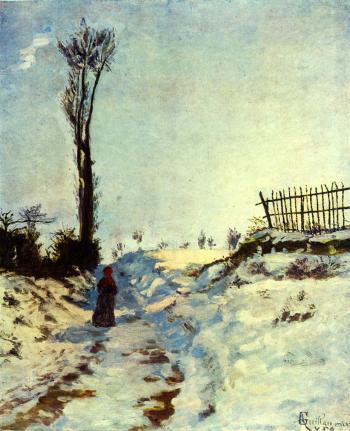
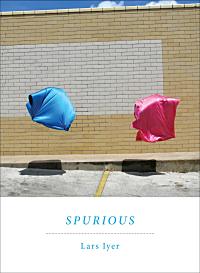


 The Age of Briggs & Stratton
The Age of Briggs & Stratton







































